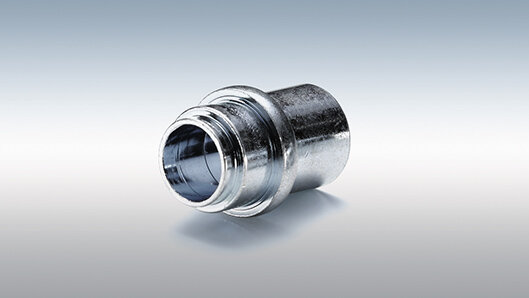Solutions for Automotive.
The perfect spacer sleeve for locking systems in passenger cars.
A tier 1 supplier to the automotive industry, who was working on the development of a locking mechanism for back seat locks, placed an order with us to supply precisely defined spacer bolts. In the course of our cooperation, we were able to convince the customer of a more effective production process and, on this basis, offer him the more precisely fitting spacer sleeve for the clamping device.
a clear order: high quantity, low price, best quality.
The component was initially planned by the customer as a bolt. The specified tolerances could only be achieved by a machining process (turning). We asked ourselves the following questions: What are the requirements for the part? What tolerances are actually specified by the application? What are the possibilities for change? What is the required quantity?
After answering these questions, we work with our customer to come to the conclusion that a machined part is not the optimal solution here. Likewise, due to the stress, no bolt with full shank was necessary. Rather, we recommend production as a sleeve using the cold forging process instead. Why do we come to this conclusion? On the one hand, the process-related adjustment of tolerances required for cold extrusion has proven to be uncritical in discussions with the customer, e.g. on the other hand, the high demand for parts speaks for itself. Due to high tooling costs, this manufacturing process would otherwise not be worthwhile.
First of all, tolerances must not depend on the planned manufacturing process of a component, but on the actual application. One is often surprised how often a part is over specified and thus savings potential is left on the road.
